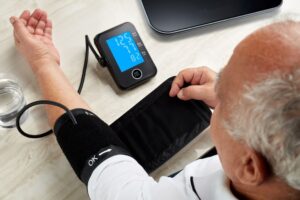In today’s fast-paced world, people are increasingly investigating how to improve their health and well-being. Smart home technology has made this shift possible in part by allowing people to integrate health into their daily lives without extra effort. From improved sleep to exercise and mental health support, smart home technology is becoming a practical tool for anyone striving to live a better life. This combination of health and technology is leading to more practical ways to stay healthy and achieve long-term goals.
Smart Lighting and Its Impact on Mood and Sleep
Our body’s sleep-wake cycle and other natural cycles rely heavily on lighting. Programmable smart lighting systems can mimic natural light patterns and gradually dim in the evening to signal that nighttime is a time to relax. Lights can gradually brighten in the morning to simulate a natural dawn, enhancing the waking experience and reducing its initial effects. These subtle adjustments can reduce stress, improve overall mood throughout the day, and improve sleep quality. Many smart lights also allow users to adjust the light color to their preferences, creating a calm or energetic atmosphere.
Climate Control for Health and Comfort
A comfortable indoor temperature is essential for your physical and mental health. Smart thermostats allow you to precisely control your indoor temperature for cool summers and warm winters. These devices learn your preferences and automatically adjust the temperature to improve sleep quality, increase concentration, and potentially even improve respiratory health. Many smart thermostats also provide good humidity control to prevent dry air that aggravates allergies, skin irritation, or respiratory problems. This comfort helps create a balanced and comfortable home environment.
Monitor and Filter Air Quality to Promote Health
In general, people’s health depends on breathing fresh air. With smart air purifiers and air quality monitors, you can keep an eye on indoor pollutants such as dust, allergens, smoke, and even carbon dioxide levels. Based on real-time air quality, they can automatically adjust purification settings. These devices improve everyone’s health by creating a better living environment, helping people with asthma, allergies, and other respiratory conditions breathe easier. Improved air quality leads to better sleep, more energy, and a reduced risk of illness caused by indoor pollutants.
Smart Kitchen and Diet Support
Every health goal starts with healthy eating, and smart kitchen technology makes this process easier than ever. You can track expiration dates and use smart refrigerators to recommend nutritious meals based on current ingredients. Portion control tools and smart scales can track food intake to ensure a balanced diet. In addition, there are smart cooking appliances that use temperature and cooking time management functions to prepare more delicious dishes. Virtual assistants in the kitchen can guide consumers through meal preparation, suggest alternatives to dangerous products, and even provide nutritional data to make healthy eating easier.
Exercise and Fitness Made Easy at Home
Health depends on physical activity; smart home technology brings exercise right to your living room. With smart mirrors, interactive fitness programs, and home fitness equipment connected to apps, you can follow guided workouts based on your fitness level and goals. Real-time feedback, progress tracking, and customized routines keep you motivated while using such equipment. Group exercise programs or virtual personal trainers can make working out more fun. Working out at home can reduce excuses and eliminate the need to drive to the gym, making it a simpler process and keeping you regular.
Sound and Music for Mental Relaxation
Mental health and emotional balance rely heavily on sound. Smart speakers and sound systems can be programmed to play guided meditations, soothing music, or nature sounds throughout the day. Whether it’s starting the morning with uplifting music or winding down with soothing sounds before bed, the right sound environment can help reduce anxiety, improve mood, and increase focus. These devices can be voice-activated or automatically activated based on time, making it easy for users to maintain a stress-free atmosphere.
Voice Assistants for Daily Activities and Health Reminders
Voice assistants for smart homes can do more than just set reminders or play music. They can also set health reminders, such as drinking water, getting up and stretching, or taking deep breaths during the workday. They can help develop positive habits by tracking daily activities and promoting mindfulness. Some voice assistants can even guide breathing exercises or meditation sessions. Voice assistants can help you achieve your health goals with hands-free controls, so they don’t disrupt your daily activities.
Smart Beds and Sleep Tracking
Good health depends on getting enough quality sleep. Smart beds offer a new way to maximize the quality of your sleep. These mattresses can monitor your sleep habits, adjust the firmness of the mattress, adjust the temperature, and even monitor snoring. By analyzing your sleep history, smart beds provide personalized insights and suggestions to improve your sleep quality over time. Some smart mattresses can also connect to other home appliances to automatically turn down the thermostat or dim the lights before bed. A better night’s sleep can improve your focus, boost your immune system, and give you a more balanced mindset throughout the day.
Conclusion
Smart home technology is more than just convenience; it’s a powerful tool to help you achieve and maintain your health goals. Whether it’s improving your sleep, improving your diet, encouraging physical activity, or improving your mental health, smart devices can provide a personalized, supportive environment that meets your health needs. Smart homes make it easier to stay healthy by adding automated and customizable elements that fit your lifestyle. As technology advances, the opportunities to improve your health and quality of life from the comfort of your own home will only increase.
FAQs
1. Can the technology in my smart home really help me live healthier?
Smart home devices can improve your health by automating and monitoring improvements in sleep, nutrition, exercise, air quality, and mental health.
2. Are smart health tools difficult to install?
Most smart devices are straightforward to use, even for beginners, and come with apps or step-by-step instructions that simplify installation and operation.
3. Do smart home devices rely on Wi-Fi?
While some smart devices can go offline, most require Wi-Fi to function properly, sync data, or receive updates.
4. How much does smart home technology cost?
There are both high-end and low-cost options, so you can start with basic tools and buy more as your budget allows.
5. Can I use multiple health devices in one place?
Many smart systems and apps allow you to manage multiple devices from one interface, simplifying your health insurance.



